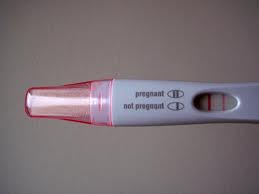If you are a teen looking to find more information on early pregnancy tests, you’ve come to the right place. Finding out your contraception has failed or having unprotected sex can be a terrifying reality since unintended pregnancy can be a very likely consequence.
This is when early pregnancy tests come into play. If it has been a couple of weeks since you had unprotected sex, or your contraception failed during sex, you may be wondering the likelihood of your being pregnant. At this point, you might not want to wait and find out if you are pregnant until your next period. That is why there is the convenience of early pregnancy tests. Now with advances in pregnancy and medical technology, it is easy and very possible to detect pregnancy from your own home even before you find out if you have missed your period or not. However, there are a variety of early pregnancy tests that work at different times to determine when exactly you can take the test to find out your state of conception. In addition, some of these early pregnancy tests may not be as reliable as others and some may have a higher likelihood of false-negatives or false-positives. Regardless, these early pregnancy tests can be a huge sigh of relief for some and for others it can give them an idea of exactly what to expect in the coming months.
How Pregnancy Tests Work:
A pregnancy test works because it detects the amount of the hormone human chorionic gonadotropin (HCG) level found in a woman while pregnant. At-home pregnancy tests can detect this hormone as well as blood work and urine samples in a hospital setting. HCG can be detected in the body about seven to nine days after the fertilization of the egg.
Rules of Using Early Pregnancy Tests:
Because the at-home tests must be very sensitive to be able to detect even the smallest amounts of HCG, it is possible to use one about seven days past ovulation, or the day you may have suspected fertilization of the egg, which is also known as conception. However, sometimes even the Early Response pregnancy tests are not that sensitive. However, many at-home early response tests are able to test for pregnancy about five days before a missed period is set to take place. If your cycle is like clockwork and begins every 28 days, there is a better chance you will be able to time taking the pregnancy test to get the most accurate reading. This is helpful for those who may not yet even start to feel symptoms of pregnancy like morning sickness and fatigue within those first few weeks after conception.
There is always a chance to get a false positive or false negative when taking a pregnancy test because no at-home tests are 100 percent reliable, although most of the time pretty effective. The false results can also occur with a home pregnancy test when it is taken incorrectly. An indication of possible false result is if the lines on the test result are faint and almost difficult to read or interpret. This is when it is important to make sure and reread the directions for the pregnancy test and to consider taking a second test to make sure. The most important thing to remember to avoid interpreting a false result is to only check the lines at the instructed time. To do so before or after will cause the lines to appear faint, which can given an improper reading. However many digital at-home tests do not have as high of a risk of getting a false positive or negative.
Where to Get Early Pregnancy Tests:
Early teen pregnancy tests are sold at just about any convenience store, grocery store, pharmacy or market. You don’t have to be a specific age to purchase a pregnancy test. The cost of these tests range anywhere from a few dollars to upwards of $20. Because of the slight chance of a false negative or a false positive, some women will take two or three pregnancy tests to be sure.
However, that is not necessarily required. Hospitals, private doctor practices and health care clinics also offer early pregnancy tests by either testing the woman’s blood or urine. Sometimes these tests may come back as inconclusive or negative, however if it is done too early. If you have any questions on whether or not it is too early to have an actual doctor-performed early pregnancy test, simply ask your doctor or a health care professional.
Sources: justmommies.com, babycenter.com, kidshealth.org
